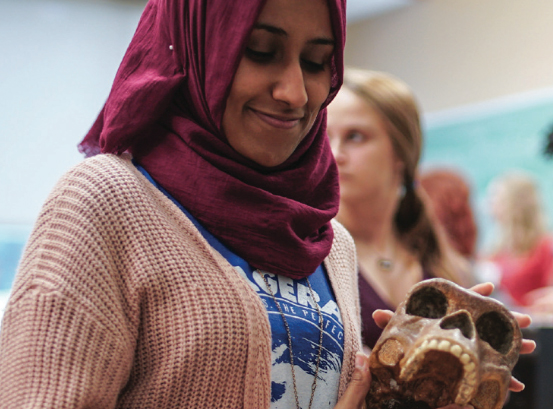About the REU Site
 The Bioarchaeology of Bronze Age Social Systems NSF-REU Site supports the training
of undergraduate students in conducting collaborative research– from hypothesis formation
to data collection, analysis, public outreach, and publication. Complementary instruction
in professional development, ethics, and statistical modules are also incorporated
in the program’s curriculum.
The Bioarchaeology of Bronze Age Social Systems NSF-REU Site supports the training
of undergraduate students in conducting collaborative research– from hypothesis formation
to data collection, analysis, public outreach, and publication. Complementary instruction
in professional development, ethics, and statistical modules are also incorporated
in the program’s curriculum.
Housed at the Center for Archaeological Studies at the University of South Alabama, teams of students collaborate with an interdisciplinary group of dynamic scientists while conducting original research on two Arabian Bronze Age skeletal collections (2400-2100 BCE) over an eight-week period. As part of these independent research projects, students will examine how alternative pathways to social complexity were embodied in ancient human skeletal remains and reflected in burial traditions.
As part of this REU, students will:
- Conduct hands-on, bioarchaeological research on archaeological human skeletal remains using cutting-edge techniques and technology
- Engage with guest scientists with expertise in bioarchaeology who will provide guidance and mentorship throughout the research process
- Investigate and apply theoretical concepts involving social complexity, agency, and identity to research results
- Undergo training on how to effectively disseminate research to both academics and the broader public
- Communicate with members of the local community in the United Arab Emirates to share their project findings using weekly blogs, social media posts, posters, and digital stories
- Receive mentorship in professional development via guest scientists and with established summer undergraduate research workshops at the University of South Alabama
- Critique scholarly discussions and engage in debate surrounding the ethics of working with human remains.
- Design and present a conference poster detailing research results at the American Association of Physical Anthropologists’ annual meeting


